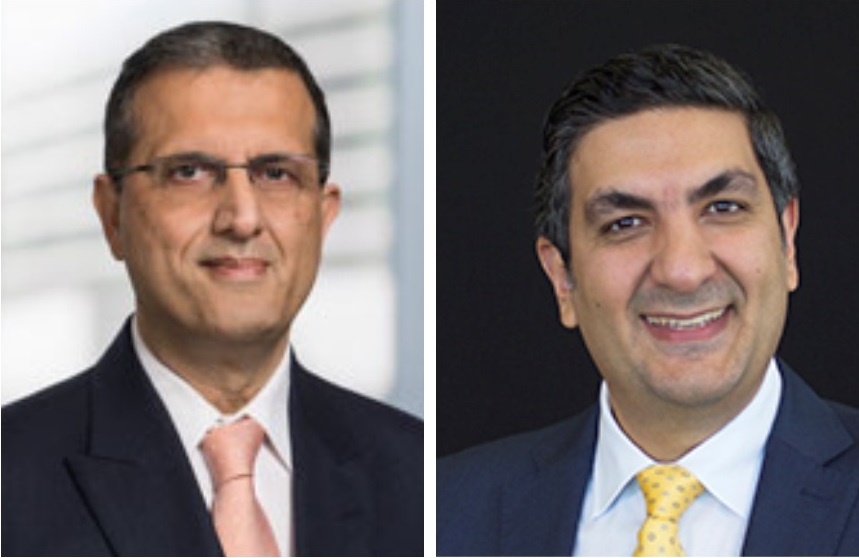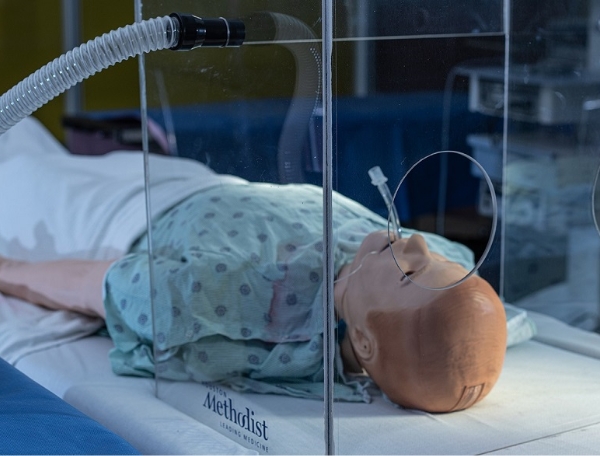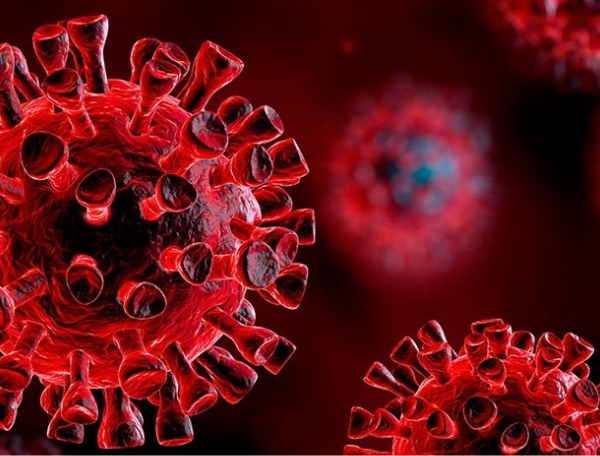


Outcomes Research
Facing the Unseen Crisis: Stress

Houston Methodist takes action to address health provider burnout
Data collected by the Center for Outcomes Research is leading to groundbreaking studies on health provider stress during the pandemic.
With the arrival of COVID-19, the media cast light on several issues not normally seen. Among the most surprising were those of New York’s health providers pleading for support, clearly stressed and even tearful. Though such images are rarely seen publicly, experts at Houston Methodist have been studying health provider burnout for several years.
Specifically, the Center for Outcomes Research has been partnering with ICU teams, within Houston Methodist and from other TMC hospitals, to collect data that has laid the foundation to study health provider stress—before, during and after the pandemic.
During the initial peak of COVID-19, Houston Methodist researchers shared their expertise on ICU staff burnout in a study published in April 2020’s Anesthesia & Analgesia. Titled “Provider Burnout and Fatigue during the COVID-19 Pandemic: Lessons Learned from a High-Volume Intensive Care Unit,” it was well received and has remained in the top 99 percentile of publications read on Altmetric. The study shares lessons learned collectively by an interdisciplinary team of ICU leadership in collaboration with research scientists at Houston Methodist.
Farzan Sasangohar, PhD, assistant professor, Center for Outcomes Research and Department of Surgery, has partnered over several years with Faisal N. Masud, MD, medical director of critical care, Houston Methodist Hospital, and professor of clinical anesthesiology, Departments of Anesthesiology & Critical Care and Cardiovascular Sciences, DeBakey Heart & Vascular Center. Their longstanding collaboration helped the team come together quickly for the COVID-19 burnout study, when physicians and nurses alike shared their unique stories about provider burnout.
When COVID-19 appeared, we were prepared, we were set up to study the topic of burnout. In this paper, we documented recollections, observations and shared experiences of a multidisciplinary team of experts on occupational fatigue and burnout in intensive care personnel that resulted from the COVID-19 pandemic .

Farzan Sasangohar, PhD
Assistant Professor
Center for Outcomes Research & Department of Surgery
Houston Methodist
The Provider Burnout paper proposed specific policy recommendations and guidelines for organizational readiness, resilience and disaster mitigation—many of which were already in place at Houston Methodist.
The Provider Burnout study also identified a key aspect of stress for health providers: their deep concern for patients and feeling torn between caring for patients while also protecting their own families. The health providers’ willingness to reveal their experiences and reactions reflects their commitment—as well as that of Houston Methodist leadership—to face the difficult issues, share lessons learned and take action to improve going forward.
“Our Provider Burnout study received so much positive feedback from health providers and leaders, nationally and globally, expressing appreciation for sharing information that’s timely, actionable and transparent,” Sasangohar said. “We are on the frontier of this research, and we wouldn’t have been able to do it without the support of Houston Methodist.”
While “Provider Burnout and Fatigue during the COVID-19 Pandemic” offers a snapshot of the initial surge and guidelines for addressing its stressors, Sasangohar and Masud have started a new study on the second surge. Incorporating a unique use of technology with eye tracking, wearable sensors and video recordings of physiological responses in real time, it is poised to be the first study of its kind.
Currently in the process of analyzing results, the Center for Outcomes Research team now has access to a wealth of objective evidence showing high amounts of stress linked to specific timeframes, use of certain technologies and clinical locations. The ongoing research also compares data collected previously from two ICU units – one COVID-19 unit and one non-COVID.
Although the results are not yet final, Sasangohar has observed a difference between the first and second surge.
"The second surge shows a better response in terms of access to PPE and testing, with reduced stress that previously was caused by those significant shortages,” Sasangohar said. “However, health providers now face the challenge of spending a very long time in this situation—with increased exposure. As the numbers of COVID-19 cases increase, providers feel less and less safe, including when they are out in the community.”

Faisal N. Masud, MD (left) and Farzan Sasangohar, PhD , have partnered on several studies related to health provider stress in ICUs.
Provider Burnout and Fatigue During the COVID-19 Pandemic: Lessons Learned from a High-Volume Intensive Care Unit. Sasangohar, F, Jones, SL, Masud, FN, Vahidy, FS & Kash, BA 2020, Anesthesia and Analgesia. DOI: 10.1213/ANE.0000000000004866.
LaVonne Carlson, July 2020








